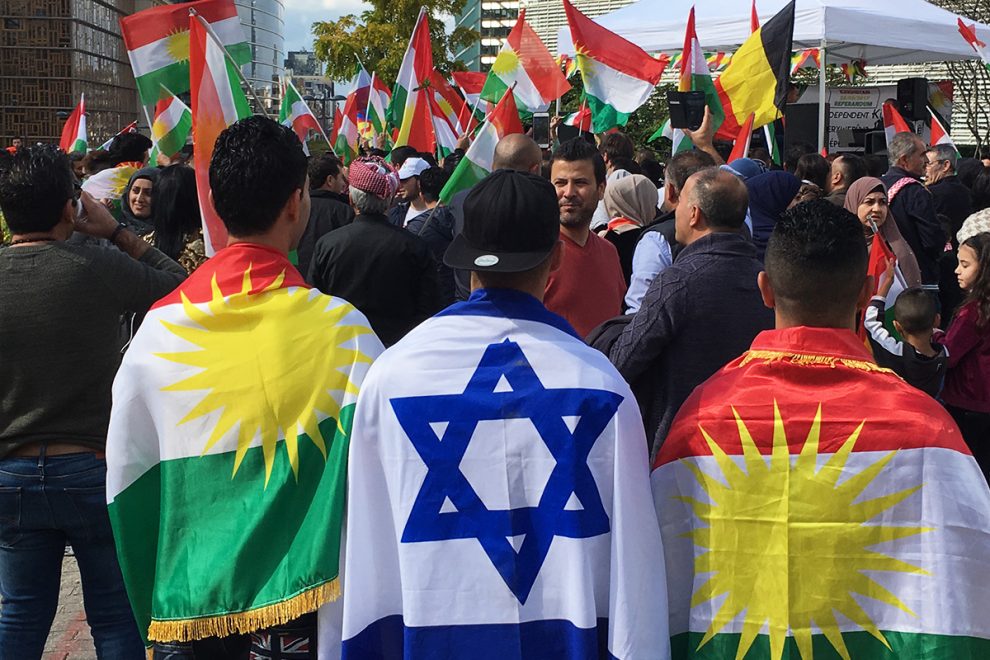Since its establishment, Israel has fostered strategic ties with the Kurds, using these relationships to advance its geopolitical goals and counter regional adversaries.
Israel’s engagement with the Kurds stems from its strategic doctrine of forming alliances with non-Arab minorities to counterbalance Arab hostility. Over time, it supported leaders like Mullah Mustafa Barzani, leveraged historical Jewish-Kurdish connections, and orchestrated migration events to strengthen ties. Kurdish-speaking Jews now hold prominent roles in Israel, and the country’s alleged ties with the PKK underscore its broader aim of countering Turkey and influencing Middle Eastern geopolitics.
How Israel’s decades-long policy towards regional minorities has shaped dynamics in the Middle East
Introduction
The role of external actors in shaping Middle Eastern geopolitics has long been a subject of intense debate. Among these, Israel’s strategic engagement with ethnic and sectarian minorities stands out, particularly its relationship with the Kurdish population and, more recently, its alleged ties to the PKK. This article delves into the historical and geopolitical underpinnings of this complex relationship, tracing its roots back to the establishment of the State of Israel and examining its implications for regional stability.
The Ben Gurion Doctrine: Laying the Foundation for Alliances
After the establishment of Israel in 1948, its first Prime Minister, David Ben Gurion, articulated a doctrine to navigate the hostility of surrounding Arab states. He famously described Israel as an “island in an Arab sea” and emphasized the need to form alliances with non-Arab states and regional minorities to maintain a balance of power.
This strategy led Israel to foster relationships with Iran during the Shah’s reign, Turkey during its secular era, Ethiopia, and various minority groups in the region, including Christians in Lebanon and the Kurds. For Israel, these alliances were not merely diplomatic; they were existential.
The Kurdish Connection: From History to Strategy
Israel’s engagement with the Kurds dates back to the early years of its statehood. In the 1950s, Israel began supporting Kurdish uprisings in Northern Iraq, primarily through the Shah of Iran. This support included training Peshmerga forces, providing intelligence, and conducting sabotage operations against Iraqi infrastructure, such as oil refineries in Mosul and Kirkuk.
The relationship, however, predates the establishment of Israel. In the 1930s, Zionist researchers scouted Northern Iraq and Iran, identifying Kurdish-speaking Jewish communities. These Jews, who had lived peacefully in these regions for centuries, were later targeted in an orchestrated migration effort to Israel.
The Dark Chapter: Mossad’s Role in Jewish Emigration
In 1950, a series of terrorist attacks against Jewish synagogues and businesses in Baghdad terrified the Jewish community, compelling them to flee to Israel. Decades later, evidence surfaced that Mossad had orchestrated these attacks to expedite Jewish emigration. While the tactic succeeded in bolstering Israel’s population, it also showcased a ruthless approach to nation-building, one that would later be applied to other groups, including the Kurds.
The Barzani Era: Building Bridges with Kurdish Leaders
Mullah Mustafa Barzani, a prominent Kurdish leader, became a central figure in Israel’s regional strategy. Barzani received Israeli support during his uprisings in Northern Iraq, with Israeli agents providing training and logistical aid. When the Algiers Agreement in 1975 curtailed Israel’s operations in Iraq via Iran, Barzani was brought to Israel, where he reconnected with childhood friends of Jewish descent.
This personal touch was part of Israel’s broader strategy to forge deep ties with the Kurdish leadership, ensuring a foothold in the region even as geopolitical conditions shifted.
The Role of Kurdish Jews in Israeli Politics
By the late 20th century, Kurdish-speaking Jews in Israel had risen to prominent positions, including roles as ministers and military leaders. Today, this community, numbering between 300,000 and 400,000, wields considerable influence in Israeli society and politics. Their presence underscores the deep historical ties between Israel and the Kurds, ties that transcend mere strategic alliances.
The PKK Factor: Allegations of Israeli Involvement
While Israel’s support for Kurdish autonomy is well-documented, its alleged ties to the PKK remain contentious. Critics argue that Israel sees the PKK as a tool to counterbalance Turkish influence in the region. By fostering a Kurdish state aligned with the PKK, Israel could create a buffer zone along Turkey’s borders, destabilizing its regional rival.
This strategy gained renewed momentum in the 1990s, following the establishment of a no-fly zone north of the 36th parallel in Iraq. Israel revived its connections with Kurdish leaders and intensified its propaganda efforts, including publicizing claims of shared Kurdish-Jewish ancestry and publishing books on their historical friendship.
Implications for Regional Stability
Israel’s long-term goal appears to be the establishment of a Kurdish state, which would serve as a strategic ally in a volatile region. However, this ambition comes with significant risks. Aligning with the PKK, a group designated as a terrorist organization by Turkey, the United States, and the European Union, could further destabilize the region and exacerbate tensions with Turkey.
Conclusion
Israel’s policy towards the Kurds and its alleged ties to the PKK reflect a calculated strategy to secure its interests in a hostile environment. While these efforts have bolstered Israel’s regional influence, they have also sown seeds of discord, complicating the geopolitical landscape. As the Middle East continues to evolve, the consequences of these policies will undoubtedly shape the region’s future.






